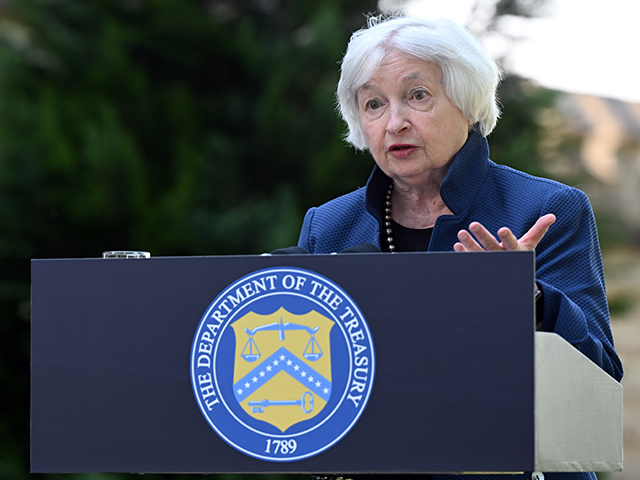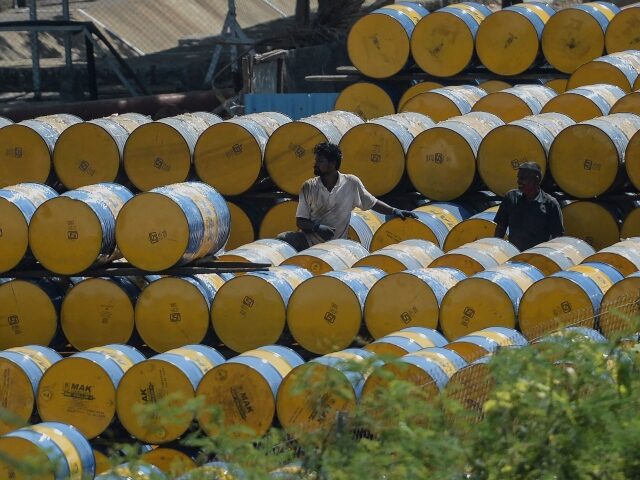Cargo data cited by The Hindu on Sunday showed Russia has become the top supplier of oil to India, with deliveries accounting for 22 percent of India’s total crude imports, vaulting past Iran with just over 20 percent and Saudi Arabia with 16 percent.
The Biden administration has been curiously relaxed about India buying millions of barrels of deeply discounted oil from reigning global supervillain Vladimir Putin. In fact, Treasury Secretary Janet Yellen said on Tuesday that India could benefit from price caps the Group of Seven nations (G7) plan to impose on seaborne Russian oil and threw in an offhand suggestion for how India can get around those price caps, should it find them unbearable.
“If they want to use Western financial services like insurance, the price cap would apply to their purchases – but even if they use other financial services, we believe the price cap will give them leverage to negotiate good discounts from world markets. We would hope to see India benefiting from this program,” Yellen told reporters as she prepared to depart for a meeting of the U.S.-India Economic and Financial Partnership.
Yellen was referring to the unprecedented price caps the United States has been negotiating with other G7 members to impose on Russian oil. The G7 agreed last week to set a fixed cap, rather than a “floating” price pegged to economic indexes, which the Russians could manipulate by deliberately shorting their supply. The cap is scheduled to be finalized by the end of November and imposed beginning on December 5.
Yellen said last week the cap was intended to reduce the amount of profit Russia can generate from oil sales without restricting supply to its customers. The Russians have threatened to cut off shipments to any country that respects the G7 price caps – which could put India in a difficult position, given how much Russian oil it is importing and India’s desire to maintain good relations with both Russia and the Western world.
Yellen was, in essence, cajoling India to go along with the price caps because it would theoretically be able to negotiate more agreeable prices from suppliers other than Russia, but also hinting they could avoid the caps by refraining from using Western financial services, a strategy Moscow has been trying to persuade Delhi to consider since early in the Ukraine war.

U.S. Treasury Secretary Janet Yellen answers questions at a press conference at the G7 meeting of finance ministers and central bank governors. (Federico Gambarini/dpa via Getty Images)
A testy Indian Oil Minister Hardeep Singh Puri made it clear last week that India intends to keep buying Russian oil and refuses to feel any guilt about providing Russia with income that could finance its war in Ukraine.
“We ended the financial year 2022, the purchases of Russian oil were not two percent, it was 0.2 percent. Moreover, we still buy a quarter of what Europe buys in one afternoon. So let’s be very clear about what the perspective is,” Puri told reporters who asked about the “moral conflict” of buying Russian oil.
The Hindu used those very same figures to stress how much India’s oil purchases from Russia have exploded over the past six months – from 0.2 percent of India’s imports in March to 22 percent today.
Indian Foreign Minister S. Jaishankar, currently in Moscow with a retinue of senior trade officials, responded to Yellen on Tuesday by stating India will continue buying as much Russian oil as it needs.
“Russia has been a steady and time-tested partner. Any objective evaluation of our relationship over many decades would confirm that it has actually served both our countries very, very well,” he said.
“As the world’s third-largest consumer of oil and gas, a consumer where the levels of income are not very high, it is our fundamental obligation to ensure that the Indian consumer has the best possible access on the most advantageous terms to international markets,” Jaishankar said.
“And in that respect, quite honestly, we have seen that the India-Russia relationship has worked to our advantage. So, if it works to my advantage, I would like to keep that going,” he said.
After meeting with Jaishankar, Russian Foreign Minister Sergey Lavrov praised his “Indian friends” and denounced the U.S. and Europe for using bullying tactics to maintain their “dominant role in world affairs.”

COMMENTS
Please let us know if you're having issues with commenting.